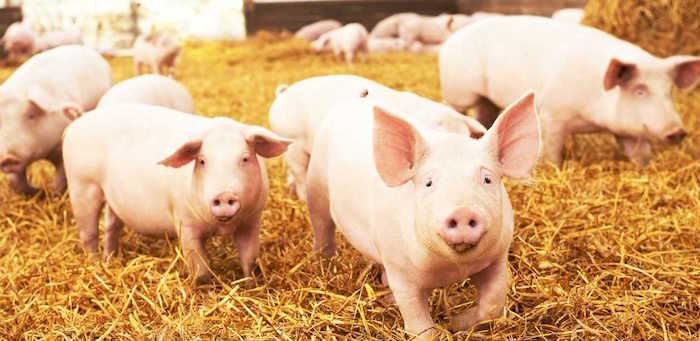The new national Pig Health and Welfare Pathway can deliver public goods and boost productivity on farms, according to the chair of the group developing the policy.
The industry will soon have the opportunity to have its say on the major new initiative, which, backed by Government funding, aims to improve the long-term health and welfare of the English pig herd.
The Pig Pathway will see the development of a national plan to control or eradicate an agreed priority list of endemic diseases, using PRRSv as a proxy indicator.
After six months of meetings, the Pig Pathway Project Group, made up of experts from across the pig sector, has set out 10 key objectives within an overarching Pathway plan.
“These will be the subject of an industry-wide consultation over the coming months,” the group’s chairman Stewart Houston said.
He said the Defra-industry partnership was driven by a desire to deliver a combination of ‘public goods’ under the new domestic agricultural policy, alongside increased productivity for the industry.
The initial proposal includes:
- A registration process for pig keepers to access the scheme.
- The development of a standard disease prevention (or ‘biosecurity’) tool.
- National endemic disease prevention plans, with interventions tailored for regions and clusters.
- Support to improve pig welfare.
- Promotion of skills and training.
- Engagement with small-scale producers on pig health and welfare.
There will also be a strong focus on communicating the aims and objectives of the Pathway, which will ‘go live’ in April 2022.
Three separate funding streams – disease reduction, welfare and productivity – will be available under the new domestic agricultural policy for an initial three-year period to support the Pathway’s goals.
“The ultimate aim is to deliver sustained behaviour change, more efficient production and better pig health and welfare,” Mr Houston said.
“The prize is productivity improvements arising from reduced mortality, higher growth rate and lower food conversion, and improved and more resilient breeding herd fertility, all leading to improved abattoir throughput. We’re sure, too, that staff will be motivated to work with healthier pigs.
“Beyond that, will we need to demonstrate further public goods – these will include the continued reduction in antimicrobial use and a lower environmental impact through more efficient growth and other productivity improvements.
“The Scheme has the support of all four Defra ministers. We’ve not seen this level of government/industry support and partnership for 50 years, so let’s all grasp the opportunity it offers when we can.”
Having set out the objectives, the next step, Mr Houston added, was to work with Defra colleagues on how to deliver the various initiatives.
A communication group is exploring the best way to engage with producers in the absence of any sort of public workshops or conferences in the current climate.




